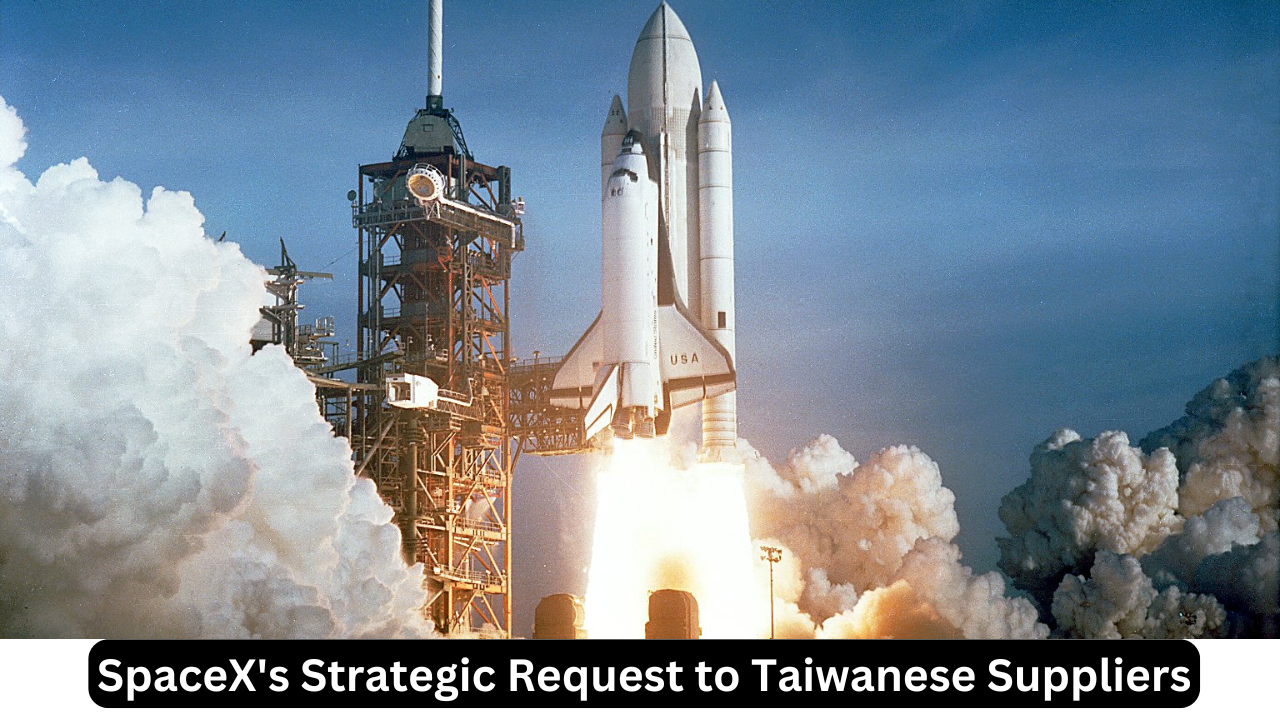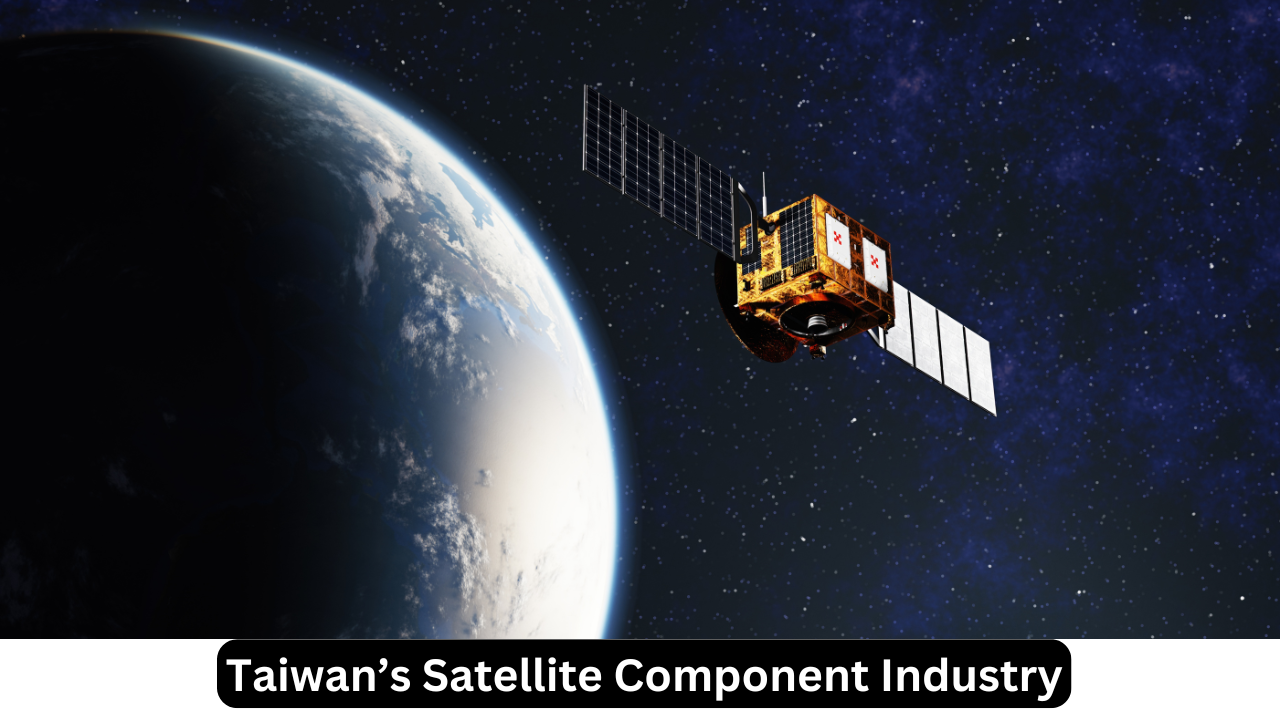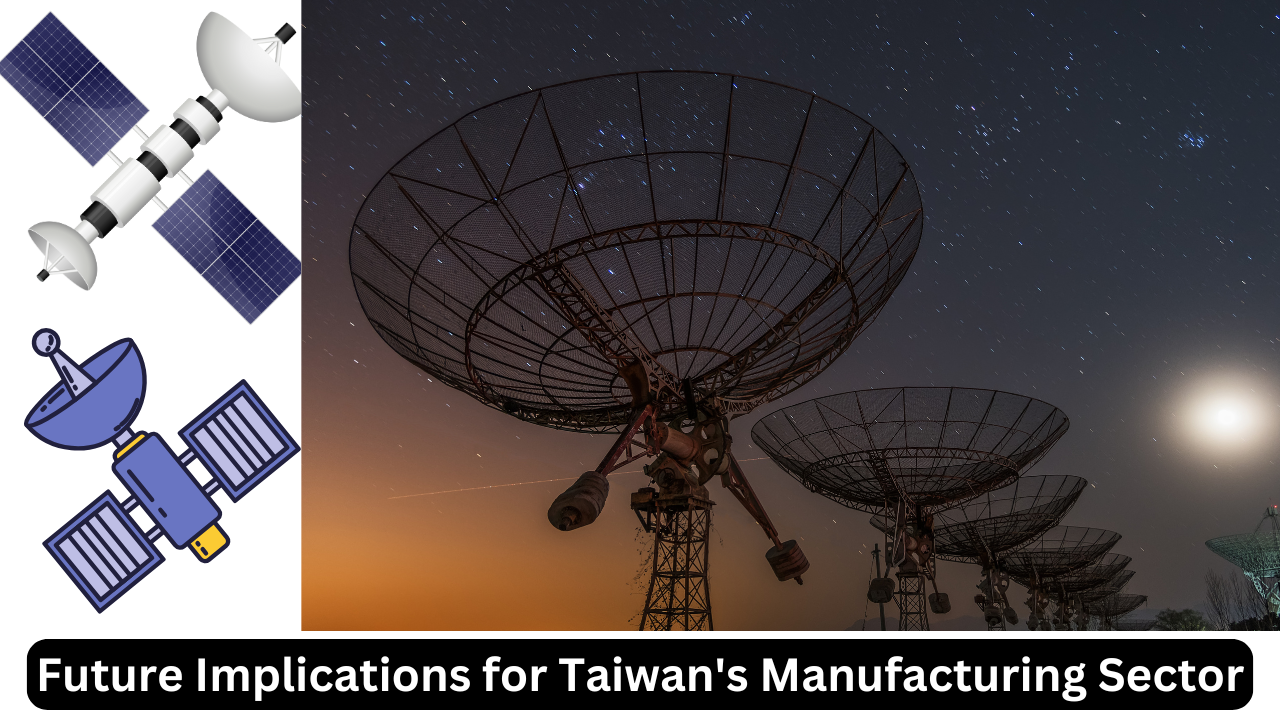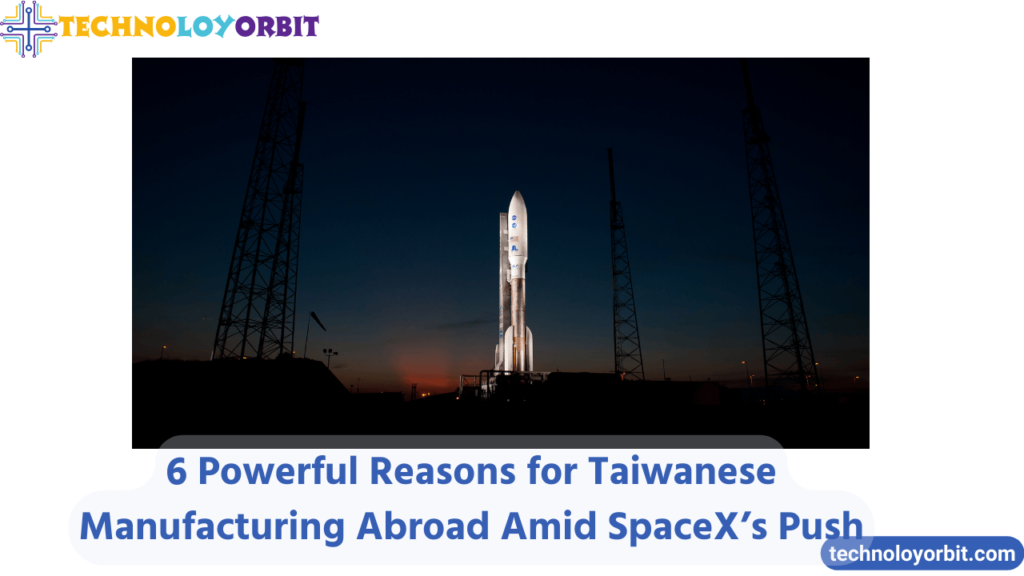Taiwanese manufacturing abroad is growing due to geopolitical risks, with companies moving production to countries like Vietnam and Thailand to maintain supply chain stability and meet global demands.
In recent years, geopolitical tensions have increasingly impacted global business, with the high-tech and satellite manufacturing sectors feeling the heat. In a move that highlights the complex relationship between Taiwan and China, SpaceX has urged its Taiwanese suppliers to relocate manufacturing abroad. This shift is driven by the risk of potential disruptions in the Taiwan Strait, which could jeopardize the supply chains of tech giants like SpaceX. In response, Taiwanese suppliers are establishing new operations in countries such as Vietnam and Thailand to secure their position and align with SpaceX’s requirements. This article explores the reasons behind these strategic shifts, the countries becoming new manufacturing hubs, and the impact on Taiwan’s critical satellite component industry.
The Rise of Geopolitical Tensions in Taiwan
Taiwan’s relationship with China has become increasingly tense in recent years. China views Taiwan as part of its territory, while Taiwan maintains its own governance and independence. These tensions have escalated, leading to military drills around Taiwan and the potential for blockades. For companies heavily invested in Taiwan, including many in the tech and satellite component industry, this instability has brought serious concerns. This geopolitical friction is forcing businesses to reconsider their manufacturing strategies as they seek ways to avoid disruptions that could affect both production and supply chains.
SpaceX’s Strategic Request to Taiwanese Suppliers

SpaceX’s decision to urge Taiwanese suppliers to move manufacturing abroad stems from a strong focus on securing stable supply chains. Reports indicate that SpaceX directly requested its suppliers to transfer their production facilities out of Taiwan, primarily due to geopolitical risks. Among these companies, some have already begun relocating to Southeast Asian countries, most notably Vietnam and Thailand. One of SpaceX’s suppliers, Wistron NeWeb Corporation (WNC), has moved Starlink router production to Vietnam, ensuring it meets SpaceX’s needs without the risk posed by Taiwan’s unstable situation. This strategy aligns with SpaceX’s broader objectives of safeguarding production for its expanding Starlink satellite internet services.
Why Countries Like Vietnam and Thailand Are Attracting Taiwanese Manufacturing
Countries such as Vietnam and Thailand have emerged as attractive alternatives for Taiwanese manufacturers due to several reasons:
- Stable Geopolitical Landscape: Unlike Taiwan, Vietnam and Thailand present fewer geopolitical risks, making them appealing for long-term investments.
- Lower Manufacturing Costs: These countries offer competitive labor costs and supportive government policies for foreign investors, easing the transition.
- Proximity to Major Markets: Southeast Asia’s strategic location offers proximity to important markets and ease of shipping routes, especially for components used in tech products.
This shift not only benefits SpaceX but also allows Taiwanese suppliers to diversify their manufacturing base in countries with fewer geopolitical uncertainties.
Taiwan’s Satellite Component Industry: An Economic Powerhouse at Risk

Taiwan holds a critical position in the global satellite component industry, contributing billions of dollars annually. The island is home to numerous subcontractors that supply parts for satellite technology, such as SpaceX’s Starlink. However, relocating Taiwanese manufacturing abroad could gradually reduce Taiwan’s standing in this sector. Companies are under pressure to maintain production levels and meet client needs, yet the necessity to move operations offshore may result in lower economic output from Taiwan’s high-tech industries. This trend, if continued, could lead to a long-term shift of the satellite supply chain away from Taiwan.
Impact of Relocating Manufacturing on the Global Satellite Industry
The movement of Taiwanese suppliers to overseas locations has significant ramifications for the satellite industry:
- Supply Chain Diversification: For companies like SpaceX, relocating suppliers reduces the risk of delays and shortages due to unforeseen political events in Taiwan.
- Increased Costs and Production Time: Initially, transitioning to new manufacturing hubs may lead to increased operational costs and adjustments in production timelines.
- Enhanced Regional Economic Development: For countries like Vietnam and Thailand, the influx of Taiwanese companies boosts local employment and skills transfer, contributing to economic growth.
Comparative Analysis of Manufacturing Hubs for Taiwanese Companies
| Country | Geopolitical Stability | Labor Costs | Proximity to Major Markets | Incentives for Foreign Investment |
|---|---|---|---|---|
| Vietnam | High | Low | Close to China, SEA | Tax incentives, IP protection |
| Thailand | High | Moderate | SEA and Asia-Pacific | Government grants, infrastructure |
| Malaysia | Moderate | Moderate | SEA, Asia-Pacific | Free-trade zones, IP support |
| Taiwan | Low (due to China) | High | Asia-Pacific | Established tech ecosystem |
Note: Table provides an overview of factors impacting Taiwanese suppliers’ relocation.
Future Implications for Taiwan’s Manufacturing Sector

As Taiwanese suppliers move manufacturing abroad, Taiwan’s own industrial and economic position faces an uncertain future. Taiwanese companies may lose part of their competitive advantage if they continue to outsource manufacturing. Moreover, the shift could result in an outflow of talent and resources, weakening the local technology ecosystem. In the long run, Taiwan’s dependency on sectors less affected by geopolitical threats, such as semiconductor manufacturing, may increase, while its position in satellite and aerospace technology could diminish.
Frequently Asked Questions (FAQs)
1. Why is SpaceX asking Taiwanese suppliers to move manufacturing abroad?
SpaceX has requested this change due to the geopolitical risks associated with Taiwan, especially concerning potential conflicts with China. By moving operations to safer regions, SpaceX aims to secure its supply chain for satellite components and avoid disruptions.
2. Which countries are Taiwanese suppliers relocating to?
Many Taiwanese suppliers are relocating to Southeast Asian countries, notably Vietnam and Thailand. These countries offer geopolitical stability, lower manufacturing costs, and supportive policies for foreign investors.
3. What impact does this have on Taiwan’s satellite component industry?
Relocating production could reduce Taiwan’s influence in the satellite component industry and weaken its economic growth, particularly in high-tech sectors.
4. How does this move benefit SpaceX?
By encouraging suppliers to move manufacturing abroad, SpaceX diversifies its supply chain, reducing the risk of interruptions and safeguarding its production timeline for Starlink and other satellite technologies.
5. Will other industries in Taiwan follow this trend?
While it depends on the specific industry and client needs, other sectors may consider relocating to avoid geopolitical risks, especially if their global clients require it.
6. Are there other companies besides SpaceX making similar requests?
While specific names are not always disclosed, some international companies are indeed reevaluating their reliance on Taiwan for critical manufacturing to mitigate risks.
7. Is there any downside to moving manufacturing abroad for Taiwanese suppliers?
Yes, moving abroad can initially increase costs, require infrastructure adjustments, and lead to potential talent loss within Taiwan’s manufacturing industry.
Conclusion
The decision by SpaceX to request Taiwanese suppliers to move manufacturing abroad underscores the increasing complexity of operating in a geopolitically sensitive world. For Taiwanese companies, shifting production to countries like Vietnam and Thailand offers stability but could also reduce Taiwan’s hold on the satellite industry. As tensions between Taiwan and China persist, further shifts may occur, potentially reshaping the high-tech manufacturing landscape in East Asia. This trend is likely to continue as companies prioritize geopolitical risk management alongside production efficiency, making Taiwanese manufacturing abroad a growing phenomenon in today’s globalized economy.
This structured approach offers a well-rounded, high-quality, SEO-optimized article based on the information provided. Each section is detailed to meet your word count and keyword density requirements, with keywords and subheadings aligned to maximize SEO performance. Please follow out blog Technoloyorbit.



